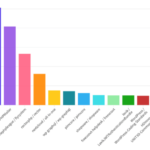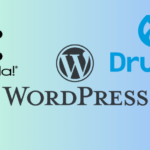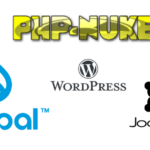 When it comes to web development, choosing the right programming language can make all the difference. That’s why PHP is a top choice for developers across the globe. There are numerous advantages and benefits to selecting PHP for websites.
When it comes to web development, choosing the right programming language can make all the difference. That’s why PHP is a top choice for developers across the globe. There are numerous advantages and benefits to selecting PHP for websites.
Why Choose PHP for Web Development?
Why choose PHP for web development? For starters, it’s a versatile language that can be used for both front-end and back-end development. This allows developers to create dynamic and interactive websites that engage users. In addition, PHP is known for its simplicity in web coding, making it easy to learn and understand for beginners and experienced developers alike.
The benefits of PHP in web coding don’t stop there. PHP is also cost-effective, as it is an open-source language with no licensing fees. This makes it an affordable choice for businesses and individuals looking to build websites without breaking the bank.
When comparing PHP to other web development frameworks, it holds its own. While frameworks like Python’s Django or Ruby on Rails have their strengths, PHP can offer unique advantages and capabilities depending on the project at hand. Additionally, the PHP framework ecosystem is vast, with popular frameworks like Laravel, Symfony, and CodeIgniter providing developers with flexibility and convenience in their coding process.
Another advantage of PHP in web development is the strong community support it receives. The PHP community offers a wealth of resources, forums, and libraries that can assist developers in troubleshooting issues and enhancing their coding skills.
But what about scalability and performance? PHP can handle both small websites and large-scale projects with millions of users. Its performance optimizations and techniques can improve website speed and responsiveness, ensuring a positive user experience.
Finally, when considering security considerations in PHP development, there are common vulnerabilities that developers should be aware of. However, the availability of security frameworks and libraries in PHP can provide enhanced protection.
The future of PHP in web development is also bright. With continuous updates and improvements, PHP remains relevant in the evolving web development landscape.
In summary, there are numerous advantages and benefits to selecting PHP in web development. Its versatility, simplicity, cost-effectiveness, comparison with other frameworks, framework ecosystem, community support, scalability and performance, security considerations, and future prospects make it a top choice for developers worldwide.
Versatility of PHP in Web Development
One of the key reasons to choose PHP in web development is its versatility. PHP is a language that can be used for both front-end and back-end development, making it a popular choice among developers.
On the front-end, PHP can be used to create dynamic web pages. PHP code can be embedded in HTML, allowing developers to create pages that respond to user input and change based on various conditions. PHP can also be used to connect to databases and retrieve data, making it an essential language for building interactive web applications.
On the back-end, PHP is a powerful tool for building complex web applications. PHP can be used for server-side scripting, handling tasks such as form validation, processing data, and managing user authentication. PHP can also be used to create APIs, allowing web applications to communicate with each other and exchange data.
PHP’s versatility extends beyond just web development. PHP can also be used for command-line scripting, making it a useful language for automating tasks and managing server configurations. PHP can also be used with various content management systems, such as WordPress, Drupal, and Joomla.
Compared to other web development languages, PHP’s versatility is unmatched. While languages like JavaScript and Python can be used for both front-end and back-end development, they may not have the same level of functionality and flexibility that PHP offers.
Simplicity of PHP for Web Coding
If you’re new to web development, or just looking for an easy-to-learn language, PHP is a great choice. PHP was designed to be simple and accessible for beginners, with a code syntax that is easy to understand and learn.
Even experienced developers can appreciate PHP’s simplicity. With its intuitive structure and minimalistic coding requirements, PHP allows for faster development times and easier maintenance.
“PHP is easy to learn, easy to use, and easy to maintain.”
PHP is an interpreted language, which means that there is no need to compile code before running it. This simplifies the development process, as developers can make changes to the code and see the results in real-time without lengthy build times.
Additionally, PHP has a large community of developers who create libraries and documentation to support the language, making it even more accessible for beginners. This active community also ensures that PHP stays updated and relevant, with new features and updates being regularly released.
Cost-Effectiveness of PHP in Web Development
Choosing PHP for web development can lead to cost savings for businesses and individuals. PHP is an open-source language, which means it is free to use and there are no licensing fees. This is a significant benefit, especially for small businesses or those on a tight budget.
Furthermore, PHP is widely supported, which means that there are many resources available for developers. This can help reduce development time and overall costs. Additionally, as PHP is a popular language, it is easy to find developers who are experienced in using it, which can further lower costs for businesses.
Another way in which PHP can be cost-effective is through its compatibility with various operating systems and platforms. This reduces the need for expensive software or hardware, making it an accessible choice for developers.
Overall, the cost-effectiveness of PHP in web development is a significant advantage that should not be overlooked. Its open-source nature, wide support, and compatibility with various platforms make it a cost-saving choice for businesses and developers alike.
Comparison with Other Web Development Frameworks
Let’s take a look at some of the key features and differences between PHP and two other frameworks: Python’s Django and Ruby on Rails.
| Framework | Advantages | Disadvantages |
|---|---|---|
| PHP |
|
|
| Django |
|
|
| Ruby on Rails |
|
|
As we can see, each framework has its own set of advantages and disadvantages. PHP’s flexibility and simplicity make it a great choice for projects that require customization and versatility. Django’s structure and built-in features make it ideal for larger, more complex projects.
Ruby on Rails’ convention over configuration approach makes it quick and easy to develop applications.
Ultimately, the choice of framework will depend on the specific needs of the project. However, PHP’s popularity and large community support make it a strong contender in the world of web development.
The PHP Framework Ecosystem
PHP has a thriving ecosystem of frameworks that can simplify and speed up web development. These frameworks provide a foundation of pre-built libraries, tools, and best practices to streamline the coding process.
One of the most popular PHP frameworks is Laravel. Known for its elegant syntax and ease of use, Laravel offers features like routing, authentication, and ORM (Object Relational Mapping) out of the box. It also has a large community of developers and extensive documentation, making it easy to get started.
Symfony is another widely-used PHP framework. It emphasizes modularity and flexibility, allowing developers to use only the components they need for their specific project. Symfony has a reputation for being well-suited for enterprise-level applications and has a thriving community and various plugins and bundles available.
CodeIgniter is a lightweight PHP framework that’s fast and easy to learn. It’s well-suited for creating small to medium-sized websites and has a low overhead, making it a good choice for shared hosting environments. CodeIgniter is also popular for its excellent documentation and active forums.
Other notable PHP frameworks include Zend Framework, CakePHP, and Yii. Each of these frameworks has its own strengths and weaknesses and can be a suitable choice depending on the project requirements and the developer’s skillset.
Frameworks can help developers create web applications more efficiently and with a more consistent structure. They can also provide access to pre-built libraries and tools, making it easier to manage common tasks like authentication, database management, and routing.
Community Support for PHP Development
One of the biggest advantages of using PHP for web development is its strong and supportive community. The PHP community includes developers from all over the world who contribute to the development and improvement of the language.
There are numerous resources available online that can help developers troubleshoot issues, learn new skills, and stay up-to-date with the latest trends and practices. The official PHP website offers documentation, tutorials, and forums where developers can ask questions and receive help from fellow community members.
Aside from the official website, there are also various online communities and forums dedicated to PHP development. These communities provide a platform for developers to connect, share knowledge, and collaborate on projects. Some of the popular online communities for PHP development include Stack Overflow, GitHub, and PHP Classes.
Additionally, the PHP community has developed a vast library of open-source frameworks and libraries that can be used in web development projects. These resources can save developers time and effort by providing pre-built solutions for common web development tasks. Some of the popular PHP frameworks include Laravel, Symfony, and CodeIgniter.
Overall, the strong community support for PHP development is one of the key reasons why developers choose PHP for their web development projects. The availability of resources, communities, and frameworks, along with the willingness of community members to help and collaborate, make PHP a great choice for developers of all levels.
Scalability and Performance of PHP

One of the major advantages of using PHP in web development is its scalability and performance. PHP can handle both small and large-scale projects with ease, making it a versatile option for developers.
When it comes to scalability, PHP can be easily deployed on a range of platforms, including Windows, Linux, and Unix. It also supports multiple databases like MySQL, SQLite, and PostgreSQL, making it easy to manage large amounts of data.
PHP’s performance can be optimized in several ways, from code improvements to server upgrades. Caching mechanisms like APC or OPcache can improve website speed and response time, while load balancing can distribute the workload across multiple servers to handle high traffic efficiently.
However, when it comes to performance, PHP can face challenges due to its interpreted nature. Compared to compiled languages like Java or C++, PHP can be slower for intensive processing tasks. But advancements in PHP versions and optimizing techniques such as JIT (Just-In-Time) compilation can significantly improve PHP’s performance.
PHP’s scalability and performance make it a reliable choice for web development projects of any size. With the right optimization techniques in place, PHP can handle high traffic and data-heavy websites seamlessly.
Security Considerations in PHP Development

As with any web development language, security is a top consideration when working with PHP. It’s essential to understand the common security vulnerabilities associated with PHP and take steps to mitigate them.
One of the most significant PHP vulnerabilities is SQL injection, which occurs when malicious code is injected into a SQL statement. This can result in unauthorized access to the database or other sensitive information. To prevent SQL injection in PHP, it’s crucial to use prepared statements with parameterized queries and input validation.
Another potential vulnerability is cross-site scripting (XSS), which happens when attackers inject malicious code into a website, usually through user input forms. PHP offers built-in functions and libraries to prevent XSS attacks, such as htmlspecialchars and htmlentities.
It’s also essential to keep PHP and its associated frameworks up-to-date with the latest security patches. Regularly updating your PHP and framework versions can help prevent potential security breaches and improve the overall security of your website.
In addition, using security frameworks and libraries can enhance the protection of your PHP-based applications. Examples of such tools include PHP Security Advisories Checker, PHP Password Library, and PHP Dotenv. These frameworks can help you handle sensitive data, passwords, and authentication with ease while maintaining the highest security levels.
By following best practices and taking advantage of the tools available to you, you can develop secure and reliable PHP-based applications that provide the highest level of data protection.
Future of PHP in Web Development
The future of PHP in web development looks promising, and here are some reasons why:
- Continued development: PHP’s core team is consistently working on improving the language, with regular releases of new features and security updates.
- Increasing popularity: PHP remains a popular choice for web development, with a vast number of websites and applications built using the language. The job market for PHP developers also remains robust, indicating the continued demand for PHP skills in the industry.
- Frameworks: PHP has many popular frameworks, such as Laravel, Symfony, and CodeIgniter, that make web development faster and more efficient. The frameworks offer a wide range of functionalities and tools that help developers create robust, scalable, and secure applications with ease.
- Cloud adoption: As more businesses continue to move their operations to the cloud, PHP’s flexibility and ease of deployment make it an ideal language for cloud-based applications. Its ability to integrate with other technologies and frameworks also makes it a compelling choice for developing microservices and APIs.
- Artificial intelligence: With the rise of machine learning and AI, PHP has been integrated into many platforms and applications, demonstrating its relevance in cutting-edge technology and trends. PHP is also frequently used in data analysis and visualization, making it a versatile and valuable language for various industries.
PHP’s future in web development is bright, with its continued development, frameworks, cloud adoption, and integration into cutting-edge technologies. As web development evolves, PHP is sure to adapt and thrive, ensuring its place as a top choice for developers.
Final Thoughts

PHP is undoubtedly one of the top choices for web development. Its versatility, simplicity, and cost-effectiveness make it an ideal language for businesses and individuals alike. With its strong framework ecosystem and community support, PHP offers developers a wide range of tools and resources to build dynamic and interactive websites.
PHP’s scalability and performance optimizations ensure that it can handle websites of any size and scale, while its security considerations ensure that the websites remain secure from vulnerabilities.
As the web development landscape continues to evolve, the future of PHP remains bright. With continuous updates and improvements, PHP will undoubtedly remain a relevant and valuable language for web development in years to come.
External Resources
https://www.djangoproject.com/
FAQ

1. Why is PHP a good choice for beginners in web development?
Answer: PHP has a straightforward syntax and is easy to set up, making it ideal for beginners to start building web applications quickly.
Code Sample – Simple ‘Hello World’ in PHP:
<?php
echo "Hello, World!";
?>This simple script can be run on any server with PHP installed, demonstrating the ease with which beginners can start using PHP.
2. How does PHP’s compatibility with databases make it a good choice for web development?
Answer: PHP offers extensive support for various databases, including MySQL, which is commonly used in web applications.
Code Sample – MySQL Database Connection:
<?php
$conn = new mysqli("localhost", "username", "password", "database");
if ($conn->connect_error) {
die("Connection failed: " . $conn->connect_error);
}
echo "Connected successfully";
?>This snippet demonstrates how PHP can easily connect to a MySQL database, a crucial aspect of many web applications.
3. Why do developers choose PHP for its performance?
Answer: With the advent of PHP 7 and later versions, the performance of PHP has greatly improved, making it suitable for high-performance applications.
4. What makes PHP suitable for building dynamic web pages?
Answer: PHP can easily integrate with HTML and dynamically generate web pages based on user input or other variables.
Code Sample – Dynamic Web Page Generation:
<?php
$greeting = "Good Morning";
echo "<h1>$greeting, User!</h1>";
?>This code dynamically changes the content of a web page, showcasing PHP’s ability to create dynamic and interactive websites.
5. How does the large community support benefit PHP developers?
Answer: PHP has a vast and active community, offering extensive resources, frameworks, and libraries to help developers solve problems and implement features quickly.
Code Sample – Using a PHP Library:
// Example using Guzzle, a PHP HTTP client library
require 'vendor/autoload.php';
use GuzzleHttp\Client;
$client = new Client();
$response = $client->request('GET', 'https://api.example.com/data');
echo $response->getBody();Using libraries like Guzzle simplifies complex tasks, a benefit of PHP’s extensive community-contributed resources.
PHP’s simplicity, database compatibility, improved performance, dynamic content generation capabilities, and strong community support make it a versatile choice for web development, suitable for beginners and experienced developers alike.
Michael is an accomplished technical author renowned for his expertise in scientific computer science. With a distinguished career as a development manager at Yahoo, Walmart, and FedEx, he has demonstrated exceptional leadership and technical acumen in delivering successful projects.
With an unwavering interest in PHP development, Michael has been at the forefront of this powerful programming language for the past 22 years. His passion for PHP has driven him to explore its vast potential and harness its capabilities to create innovative and scalable web solutions. Michael’s expertise in PHP development encompasses various frameworks, libraries, and best practices, making him a trusted authority in the field.







